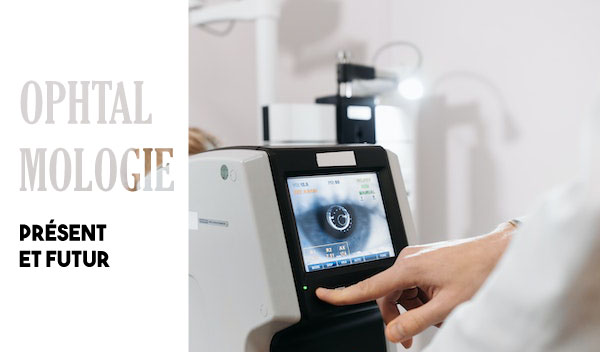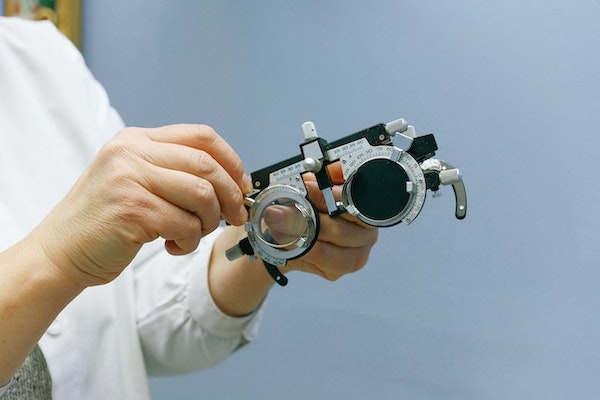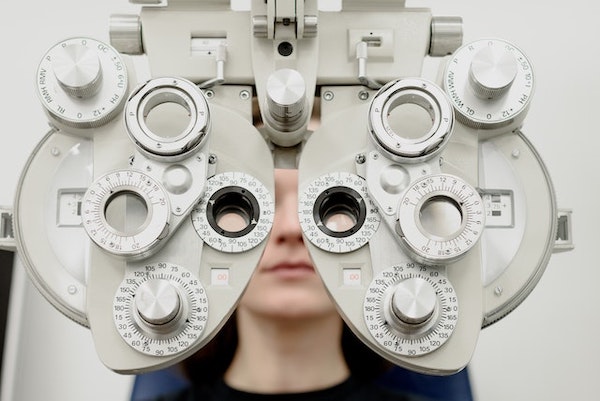DOSSIER Ophthalmology, present and future

For many French people, ophthalmology represents more and more constraints. The question of deadlines, which is regularly raised, never ceases to fuel the battle between optical professionals. Despite everything, ophthalmology is destined to evolve to meet the challenges and issues that arise. We try, in this file to make a tour of it (non-exhaustive)
Accessibility, the first challenge in ophthalmology
We have to face the facts: it is always complicated, in France, to get an appointment with an ophthalmologist . If improvements are observed in most regions, a wide disparity between some is still relevant. Thus, some regions such as Pays de la Loire, Bourgogne-Franche Comté, Nouvelle-Aquitaine and Corsica have seen their lead times lengthen by 12 days on average.
These lead times are 73 days on average in Pays de la Loire, or 68 days in Occitania. Above all, from a global point of view, approximately 30% of appointment requests are not met, which contributes to a huge negative impact on a public health issue.
[= ] 
These delays are partly explained by the non-replacement of retired ophthalmologists. A peak in cessations of activity took place between 2020 and July 2022, within, to make matters worse, the Covid-19 pandemic. Consequently, what is lacking is also the number of ophthalmologists, which is not increasing and has plateaued at just under 5,000. This is causing a chain reaction in the face of the aging of the population and the digital influx which has an impact on ophthalmic needs.
As a result, few ophthalmologists can take on new patients. In the long term, it will therefore be necessary to promote even more access to the profession, because the urgency is indeed to train many new specialists.
Meeting the needs on the short term is also essential. Solutions already exist. If they are sometimes decried, they at least make it possible to propose adequate solutions.
Vision point: what evolution(s)?
It has now been ten years since Point Vision was created. Its founder, François Pelen, an ophthalmologist by training, was alarmed by the substantial delays which he also attributed to a substantial workload. Indeed, the practice of medicine represented only a third of the activity, the rest being filled by technical acts that can be performed by an orthoptist and administrative acts.
Today, the 55 Point Vision centers have made it possible to considerably reduce treatment times. Essential for a question of public health. The service is however sometimes decried, in particular accused of confusing public health and entrepreneurship. But today, satisfaction is the order of the day among patients, who highlight the speed of care, the friendliness and the efficiency of the service. Another advantage: the support of mutual insurance companies which, thanks to agreed tariffs, take a positive view of this anti-overrun shield.

So, can this type of service evolve further? The answer is probably positive, firstly because Point Vision does not cover the entire French territory, and does not yet meet the quantified needs seen above. Its founder also highlights the need to project more towards the famous 'medical deserts' of which Brittany and the Pays de la Loire are part.
The deployment of teleconsultation is implemented, with a so-called 'outpost post' strategy. This innovation, tested in Aisne and Ardèche, has already benefited nearly 4,000 patients. Making an appointment in one of these centers allows you to have a teleconsultation with an ophthalmologist in the region and to ensure regular medical follow-up. It is therefore a safe bet that the company will continue to operate and develop this type of consultation.
Pharmacology and therapeutic innovations
As the eye is protected by 'multiple mechanisms that oppose the penetration of molecules administered systemically', treatments are largely administered orally. However, little-known innovations have experienced significant growth in recent years. Usually reserved for major infections, the intravitreal route now makes it possible to administer drugs to treat retinal diseases.

If the fact of administering drops to slow down myopia may seem trivial, it is on the contrary, here again, a real innovation. Just like being able, thanks to one drop a day, to obtain effective results for a period of one day. According to the annual report of the French Society of Ophthalmology, "the use of antibodies and other therapeutic proteins in the eye, by injection or by gene therapy, is a major advance.
[= ]
Research is currently developing the use of ocular pigments as drug reservoirs. ophthalmology.
Ophthalmology: an innovative sector that needs help
Ophthalmology is therefore entering an essential era when many challenges are presented to it. Medical advances will further increase the skills of these doctors, which we sorely lack, in the decades to come. The sector will therefore remain fueled by the vital needs of patients and therefore invariably access to care. Close collaboration between all parties should be in this interest.


